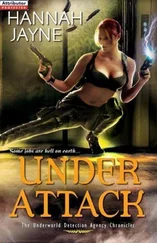broken masonry was still piled up in front of the altar and sun streamed in through a hole in the roof; Temple Bar, St Clement Danes Church, the statue of Richard 1 (‘only the sword bent on this’) outside the House of Lords … the whole area around Cambridge Circus on the south side is in a terrible state now. Practically every street is blocked with debris which the Army Pioneer Corps have now been detailed to clear away. Next week 5,000 of them start work on this all over London … Bomb almost demolished 145 Piccadilly the house in which the King and Queen used to live when they were Duke and Duchess of York … London Palladium burnt inside nothing visible outside. St James Church, Piccadilly partly demolished. The Fifty Shillings tailor opposite burned down … The Carlton Club in Pall Mall stopped a direct hit. Also Carlton House Terrace … opposite the former German Embassy … Bomb in Blackfriars Bridge Road hit five trams held up by traffic lights during the rush hour. Many casualties … Looked at bombed out theatres Brewer Street, Saville Theatre, Drury Lane theatre only just missed a bomb, alleged Queen’s Theatre bombed.
But on 10 November Heap was able to report that just a week after London’s first raid-free night since 7 September, ‘no raids at all today – till evening. Some people inclined to link this with [Neville] Chamberlain’s death’ – since ‘the now-derided champion of peace died today [in fact the previous day] a broken and disappointed man’. Though in Heap’s view, ‘Whatever the bellicose little upstarts in power today may think of him, history cannot but judge him as a fine statesman and a great gentleman.’
Lambeth Palace, which was perilously close to the river, had received a direct hit on 20 September. Alan Don recorded:
Bomb entered roof just above large drawing room window – drawing room, parlour, little drawing room are wrecked and bedrooms above are a mass of ruins, the pantry etc. a mass of rubble. Four airmen sleeping under a table in the knife room next to the coal hole were only saved by the fact that they had a table over their heads, the contents of the drawing room fell on top of them, but they crawled out unhurt … the people in the basement passage were covered with dust and got a severe shaking but were uninjured … the crypt was full of people, some 200 of them: had the bomb landed on the other side of Cranmer’s Tower they would have received the full force of the explosion. That no one was injured is a miracle. The force of the blast was terrific – the furniture, panelling etc. is reduced to matchwood, the shutters were lying in fragments on the lawn, some of the pieces landed beyond the terrace, the wall of the house is bulging dangerously and great blocks of masonry fell onto the grass … a gaping hole in the roof yawns above the landing … the whole place is covered in white dust and much of the glass is broken.
The Archbishop of Canterbury was not in residence that night, but when Canterbury Cathedral was bombed for the second time in October, Don began to wonder, ‘Are the Germans deliberately trying to kill the Primate? They have had shots at the King and the Prime Minister and they doubtless have no love for CC [Cosmo Cantuar].’
By mid-October ‘the Bishop of London reported that between 20–25 of his churches have been put out of action entirely while another 250 have been more or less damaged. St James Piccadilly is a serious loss … There is scarcely an historic building in London that remains entirely unscathed and yet we are told that three years of such bombing would be needed to destroy a quarter of London!’ wrote Don.
The sight of their ravaged city would imprint itself forever on Londoners who lived through that intense time. On 26 September Phyllis Warner went shopping in Oxford Street: ‘I almost wish I hadn’t, the sight of that fearful destruction makes me feel so much worse tonight. [It had been severely bombed in the early hours of 18 September.] The less one sees of the result of the bombs the better. The big stores are carrying on gallantly in spite of their troubles. I bought a dress at D.H. Evans, there wasn’t a pane of glass in the shop, and the models were all nakedly exposed to the street, but the shop girls, wrapped up in big coats, were models of helpfulness, and I got just what I wanted. John Lewis’s great building was bombed and burned until it is only a blackened shell, but it bears the defiant notice “Reopening on October 5th”. The other big stores are running “Business as Usual” in such corners as remain.’
Virginia Woolf also observed the destruction of ‘that great city’, the love of which was, as she wrote to her friend the composer Ethel Smyth, ‘my only patriotism’: ‘to see London all blasted … raked my heart’. On the same day that Vere Hodgson returned to London, the Woolfs, Virginia and Leonard, came up from Sussex to spend
perhaps our strangest visit. When we got to Gower St. a barrier with Diversion on it. No sign of damage. But, coming to Doughty St. a crowd … Meck Sq. [Mecklenburg Square, where the Woolfs had their London home] roped off. Wardens there, not allowed in. The house about 30 yards from us struck at one this morning by a bomb. Completely ruined. Another bomb in the square unexploded. We walked round the back. Stood by Jane Harrison’s house [the classical scholar and anthropologist who died in 1928 had lived at number 11]. The house was still smouldering. That is a great pile of bricks. Underneath all the people who had gone down the shelter. Scraps of cloth hanging to the bare walls at the side still standing. A looking glass I think swinging. Like a tooth knocked out – a clean cut. Our house undamaged. No windows yet broken – perhaps the bomb has now broken them. We saw Sage Bernal [the scientist J.D. Bernal, who worked as Scientific Advisor to the Research and Experiments Department of the Ministry of Home Security during the war] with an arm band jumping on top of the bricks – who lived there? I suppose the casual young men and women I used to see, from my window; the flat dwellers who used to have flower pots and sit on the balcony. All now blown to bits – The garage man at the back – blear eyed & jerky told us he had been blown out of his bed by the explosion; made to take shelter in a church – a hard cold seat, he said, & a small boy lying in my arms. ‘I cheered when the all clear sounded. I’m aching all over’… we went on to Grays Inn. Left the car & saw Holborn. A vast gap at the top of Chancery Lane. Smoking still. Some great shops entirely destroyed: the hotel opposite like a shell. In a wine shop there were no windows left. People standing at the tables – I think being served. Heaps of blue green glass in the road at Chancery Lane. Men breaking off fragments left in the frames. Glass falling. Then to Lincolns Inn. To the N.S. [New Statesman] office: windows broken but house untouched. We went over to it. Deserted. Glass on stairs. Wet passages. Doors locked. So back to the car. A great block of traffic. The Cinema behind Mme Tussaud’s torn open: the stage visible. Some decorations swinging. All the R[egent’s] Park houses with broken windows, but undamaged. And then miles & miles of orderly ordinary streets – all Bayswater, and Sussex Sqre as usual. Streets empty. Faces set & eyes bleared … Then at Wimbledon a raid – people began running. We drove through almost empty streets as fast as possible. Horses taken out of shafts. Cars pulled up. Then the all clear.
‘One of the oddest things about our everyday life,’ mused Phyllis Warner on 19 September, ‘is its mixture of ruthless horror and every-day routine. I pick my way to work past the bomb craters and the shattered glass, and sit at my desk in a room with a large hole in the roof (a block of paving stone came through). Next to a house reduced to matchwood, housewives are giving prosaic orders to the baker and the milkman. Of course, ordinary life must go on, but the effect is fantastic. Nobody seems to mind the day raids, which do little damage. It is the nights which are like a continuous nightmare, from which there is no merciful awakening. Yet people won’t move away. I know that I’m a fool to go on sleeping in Central London which gets plastered every night, but I feel that if others can stand it, so can I.’
Читать дальше












